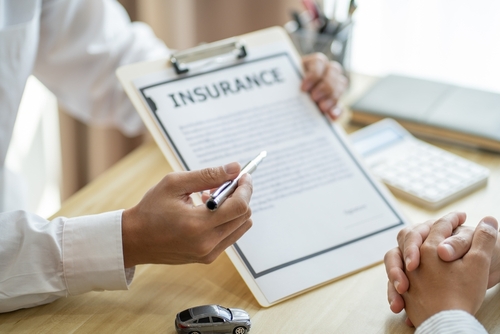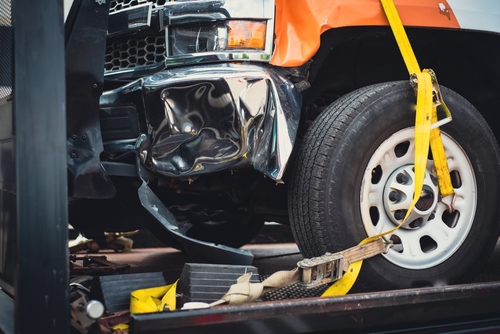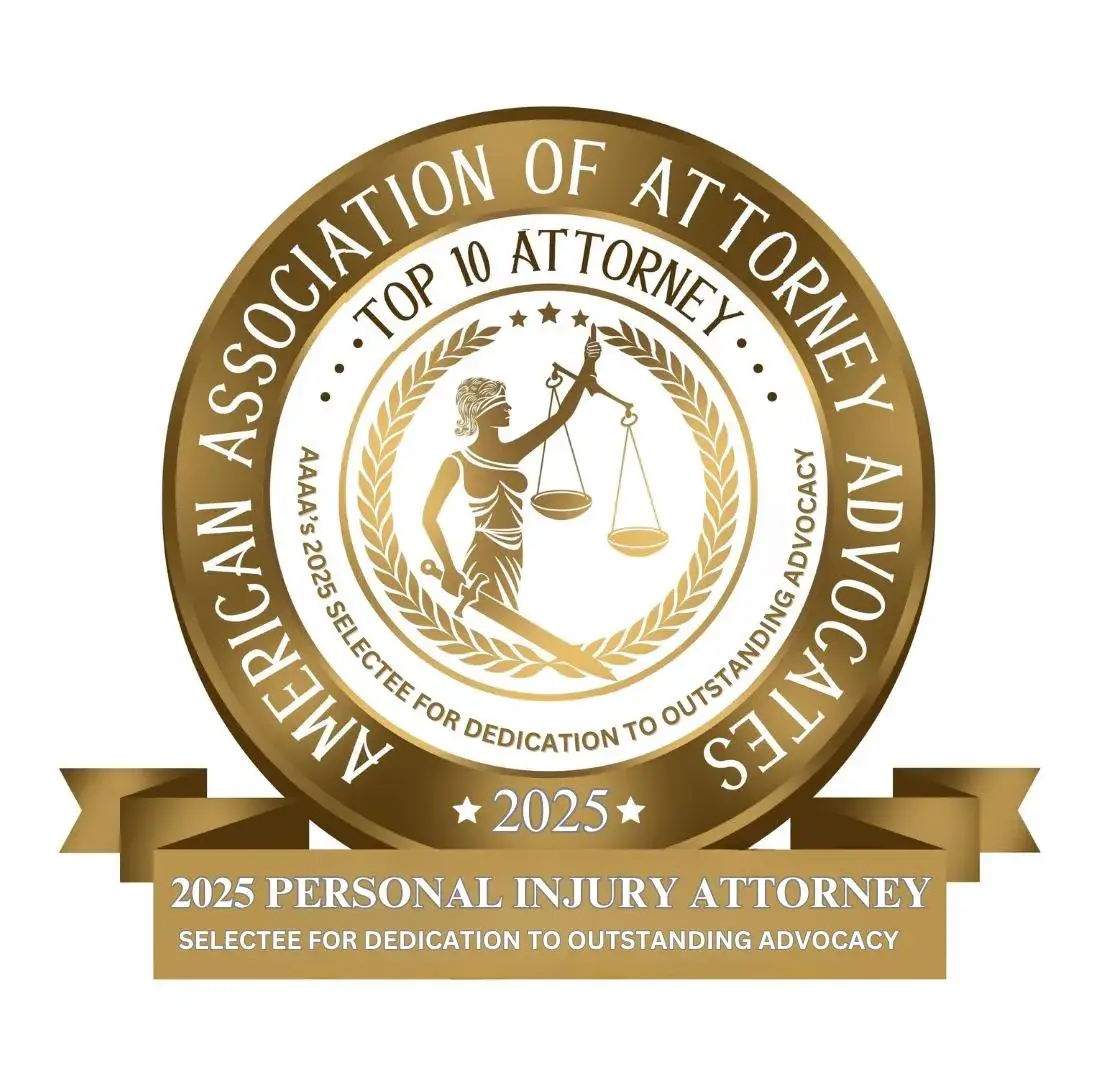
Calculating the True Cost of a Truck Accident Injury in Bergen County
If you were injured in a truck accident, your financial recovery should reflect every part of your loss, not just today’s hospital bills. In Bergen County, commercial truck crashes often cause serious injuries with long-term consequences, and the insurance company’s first offer almost never comes close to covering the full impact.
You may be facing surgeries, lost income, chronic pain, and emotional trauma that will affect you and your family for years. Calculating what your case is truly worth requires more than just adding up receipts. It takes medical insight, legal experience, and a full understanding of what you’ve lost and what you’ll continue to lose if your injury lingers or worsens. A Bergen County truck accident lawyer can evaluate every aspect of your damages and pursue the compensation needed for long-term recovery.
At Maggiano, DiGirolamo & Lizzi, P.C., we don’t let insurers set the value of your pain. We build claims that reflect your actual financial future, not just a quick fix for the present. If you have questions about what your truck accident injury may really cost, call our team for a free consultation at (201) 585-9111.
Key Takeaways for Calculating Truck Accident Costs
- Your settlement must account for all future costs, not just current bills. An initial offer from an insurer rarely covers long-term medical care, diminished earning capacity, or ongoing rehabilitation, which are often the most significant expenses.
- Non-economic damages for pain and suffering have substantial value. New Jersey law recognizes the immense human cost of an accident, including chronic pain, emotional distress, and loss of enjoyment of life, and this must be thoroughly documented to be compensated.
- New Jersey’s fault rules do not automatically bar your claim. You are eligible to recover damages as long as you are not found more than 50% at fault, though your compensation will be reduced by your percentage of blame.
The Tip of the Iceberg: Documenting Your Immediate Economic Losses
After a collision with a commercial truck, the first wave of expenses arrives quickly. While they represent only a fraction of the total cost of your injury, they form the foundation of your entire claim. Without meticulous records, these initial amounts may be disputed, reducing the foundation of your settlement. This careful documentation is also vital when filing a truck accident lawsuit, as it provides the evidence needed to prove the full scope of your losses and secure proper compensation.
Your first step from home is to begin organizing every document related to the accident. We will help you gather and manage these records, ensuring nothing is overlooked. A strong claim starts with a solid, well-documented foundation of these immediate losses.
Medical Bills
The costs add up from many sources, and you need to track them all. This includes:
- Ambulance and Emergency Services: The cost of transportation from the accident scene and the initial stabilizing treatment you received.
- Hospital Stays: Every day spent in the hospital comes with its own significant costs, from the room itself to the care provided by doctors and nurses.
- Surgical Procedures: If you require any operations, keep records of the surgeon’s fees, anesthesiologist’s fees, and the cost of the operating room.
- Specialist Appointments: You may need to see an orthopedist for broken bones, a neurologist for a head injury, a physiatrist for rehabilitation, or other specialists for specific injuries.
- Diagnostic Imaging: The bills for MRIs, CT scans, and X-rays are a necessary part of proving the extent of your injuries.
- Prescriptions and Medical Devices: The cost of pain medication, antibiotics, crutches, a wheelchair, or any other prescribed item should be documented.
Lost Wages
When you are unable to work, the financial strain on your family begins almost immediately. Calculating this loss requires clear documentation. You should gather:
- Recent Pay Stubs: Collect pay stubs from the weeks and months leading up to the accident to establish a clear record of your average income.
- Employer Communication: Keep any emails, letters, or formal notices from your employer that confirm the dates you were unable to work due to your injuries. This provides a direct link between the accident and your lost income.
Property Damage and Out-of-Pocket Expenses
The losses are not limited to your health and your job. You must also account for the property that was damaged and the new expenses you face because of your physical limitations.
- Vehicle Damage: This is the cost to repair your car or, if it was totaled, its replacement value.
- Personal Property: Any items inside your vehicle that were destroyed, such as a laptop, cell phone, or car seat, should be included.
- Daily Life Expenses: Think about the services you now have to pay for that you once handled yourself. This might include childcare, lawn maintenance, or grocery delivery.
- Modifications: If your injury requires changes to your home for mobility, such as a wheelchair ramp or grab bars in the bathroom, these are compensable costs.
- Transportation: Keep track of mileage or receipts for rideshares to and from your doctor’s appointments.
Beyond the Bills: Uncovering the Costs That Emerge Over Time
A fair settlement offer from an insurer must look beyond the stack of current bills and consider the financial impact your injuries will have for months, years, or even a lifetime.
What Happens When Your Medical Needs Continue for Months or Years?
Your doctor may determine that you’ll require ongoing treatment to manage your condition or achieve the fullest possible recovery. Calculating the true cost of your truck accident injury means projecting these future medical needs, which may include long-term therapy and potential surgeries. To protect your right to full compensation for these future expenses, it is wise to hire a truck accident lawyer who can work with medical experts to document and present the complete picture of your anticipated care.
- Physical or Occupational Therapy: Many injuries require extensive rehabilitation to restore strength, mobility, and function.
- Future Surgeries: Your initial surgery may be just the first. Doctors may plan subsequent procedures for a later date to remove hardware, revise a joint replacement, or address scar tissue.
- Long-Term Pain Management: This involves everything from regular injections and prescription medications to therapies designed to help you cope with chronic pain.
- In-Home Nursing or Attendant Care: For catastrophic injuries, you may require professional assistance at home with daily activities.
What if Your Injuries Change Your Ability to Work Permanently?
Perhaps the most devastating long-term cost is the loss of your ability to earn a living as you did before. This is known as diminished earning capacity, a legal concept for the income you will lose over your working lifetime because you no longer perform your job at the same level, or at all.
In some situations, you may need training for an entirely new line of work. The cost of this vocational rehabilitation, including tuition and certifications, is another potential component of your damages.
Who Is Responsible for These Regulations?
The Federal Motor Carrier Safety Administration (FMCSA) sets strict rules for the trucking industry, including minimum insurance requirements designed specifically to cover these types of severe, long-term damages.
For instance, federal law mandates that commercial trucks carry at least $750,000 in liability coverage precisely because the potential for life-altering injuries and enormous long-term costs is so high.
How Do You Put a Price on the Human Cost of an Injury?
The physical pain, the emotional distress, and the loss of simple joys are the true consequences of a serious injury. New Jersey law allows you to pursue compensation for these non-economic damages. This calculation is more subjective than adding up bills and is one of the most contentious parts of a claim.
What Does “Pain and Suffering” Actually Mean in a Legal Sense?
It is a broad term that covers the physical pain and emotional distress you endure because of someone else’s negligence.
Consider the rush of anxiety that surfaces every time you have to merge onto Route 17 or I-80. It’s the sleepless nights, the frustration of not being able to do things for yourself, and the shadow of the trauma that follows you. This is the human cost of the collision, and it has real value under the law.
How Do You Demonstrate This Loss?
They must be demonstrated through compelling evidence that tells the story of how the injury has rewritten your life. We help you document this impact through various means:
- Personal Journals: A daily log detailing your pain levels, physical limitations, emotional state, and the activities you no longer do is a powerful tool.
- Testimony from Loved Ones: Your spouse, children, or close friends provide credible testimony explaining the changes they have observed in you since the accident—from your mood and personality to your ability to participate in family life.
- Photos and Videos: Showing your active life before the injury such as coaching a team, working in the garden, and dancing at a wedding that creates a stark and effective contrast to your life now.
What Are Other Types of Non-Economic Damages?
- Loss of Enjoyment of Life: This compensates you for your inability to participate in hobbies and activities you once loved. Perhaps you no longer play in a recreational sports league, attend community events at your synagogue, or go to your regular services at your church.
- Loss of Consortium: This is a distinct claim available to your spouse for the negative impact your injuries have had on your marital relationship. It recognizes that a serious injury affects both partners.
- Emotional Anguish: This covers specific psychological conditions that develop from the trauma of an accident, such as depression, clinical anxiety, or post-traumatic stress disorder (PTSD).
Does Being Partially at Fault in New Jersey Affect My Claim’s Value?

This is a common worry. After an accident, many people replay the events in their mind and wonder if they could have done something differently. They worry that if they are found even slightly to blame, they will be unable to recover anything for their injuries. Knowing the right steps to take after a truck crash—such as seeking medical care, documenting the scene, and contacting a lawyer—can protect your ability to pursue fair compensation even if fault is disputed.
New Jersey Follows a Modified Comparative Fault Rule
New Jersey law follows a “modified comparative fault” rule. Simply put, this rule means you still recover damages as long as you are not found to be more than 50% responsible for the accident. If you are found to be 51% or more at fault, you are barred from recovering any compensation.
If you are found partially at fault (50% or less), your total compensation award is reduced by your percentage of fault. For instance, if you were found 10% responsible for the collision, your final damage award would be reduced by that same 10%.
How Insurance Companies Use Fault
The trucking company’s insurer will conduct a thorough investigation, and its adjusters are trained to look for any evidence that could be used to shift blame onto you. They will review the police report, analyze traffic camera footage, and interview witnesses to build a case that you share a significant portion of the fault. Their goal is to either deny the claim entirely (by arguing you were more than 50% at fault) or to reduce the amount they have to pay.
Our role at Maggiano, DiGirolamo & Lizzi, P.C. is to conduct our own independent investigation to protect you from being assigned an unfair portion of the blame. We gather our own evidence to present a full and accurate picture of what happened.
Why an Accurate Calculation Requires a Thorough Investigation
The driver of the truck may be the most obvious at-fault party, but in commercial trucking accidents, they are seldom the only one. These cases are difficult and frequently involve multiple defendants who may share responsibility for your injuries.
A legal principle called vicarious liability (or “respondeat superior” in New Jersey) makes the trucking company legally responsible for the actions of its driver while on the job. But the chain of responsibility extends even further. Other parties who may be held liable include:
- The Shipping Company: The company that loaded the cargo onto the truck, if it was improperly secured, unbalanced, or overloaded, causing the driver to lose control.
- A Maintenance Provider: The mechanic or shop that performed faulty maintenance on the truck’s brakes, tires, or other essential systems, violating FMCSA maintenance regulations.
- The Truck’s Manufacturer: The company that built the truck or one of its parts, if a defective component failed and caused the crash.
Frequently Asked Questions About Truck Accident Costs
How long do I have to file a truck accident claim in New Jersey?
For most personal injury cases in New Jersey, you have two years from the date of the accident to file a lawsuit. However, this deadline is much shorter. If a public or government entity (like a county-owned vehicle) is involved, you must file a formal Notice of Claim within just 90 days of the incident.
Should I give a recorded statement to the trucking company’s insurance adjuster?
We advise against providing a recorded statement without first consulting an attorney. Insurance adjusters are trained professionals whose questions are designed to protect their company’s interests. They may ask leading questions that could be misinterpreted or used later to argue that you were at fault or that your injuries are not as severe as you claim.
If my own insurance paid my medical bills, should I still include them in my claim?
Yes. In New Jersey, your own Personal Injury Protection (PIP) insurance is typically the first to pay for your medical bills, regardless of fault. However, the at-fault party is ultimately responsible for those costs. Through a legal process called subrogation, your attorney will work to ensure the at-fault party’s insurance reimburses any medical expenses that were paid by your insurer or that exceeded your policy limits.
Do I have a case if the truck driver received a ticket?
A traffic ticket issued to the truck driver is helpful evidence, as it suggests the driver violated a traffic law. However, it does not automatically guarantee the success of your personal injury claim. A civil case for damages has different and higher standards of proof than a simple traffic violation.
Why are truck accident claims more complicated than car accident claims?
Truck accident claims are more involved for several reasons. They involve a unique set of federal and state regulations, they frequently involve multiple potentially liable parties (the driver, the trucking company, the shipper, a maintenance company), and they deal with much higher insurance policy limits. Because the financial stakes are higher, the insurance company will commit more resources to defending the claim.
Don’t Settle for the Insurance Company’s Math

An insurance adjuster’s primary goal is to close your claim efficiently for their company. It is based on a narrow view of your losses and is not designed to protect your family’s future. The true cost of your injury includes every single way your life has been affected, yesterday, today, and for all of your tomorrows.
Let’s discuss your situation and ensure every single cost is accounted for. Call Maggiano, DiGirolamo & Lizzi, P.C. today for a no-cost consultation at (201) 585-9111.



















